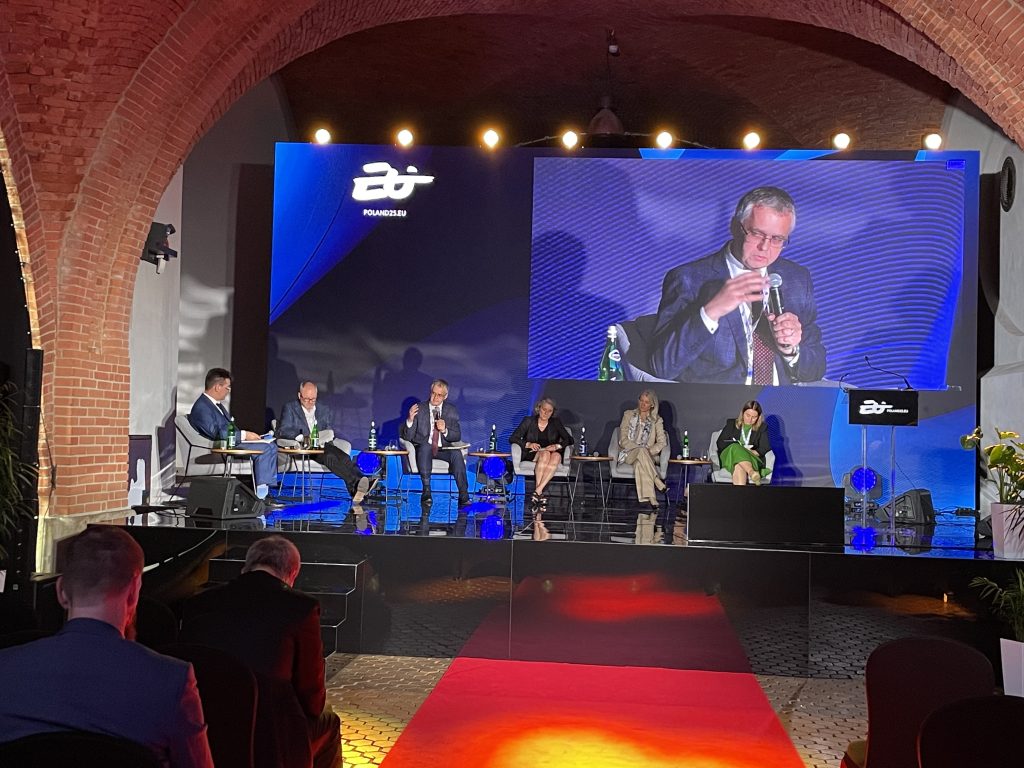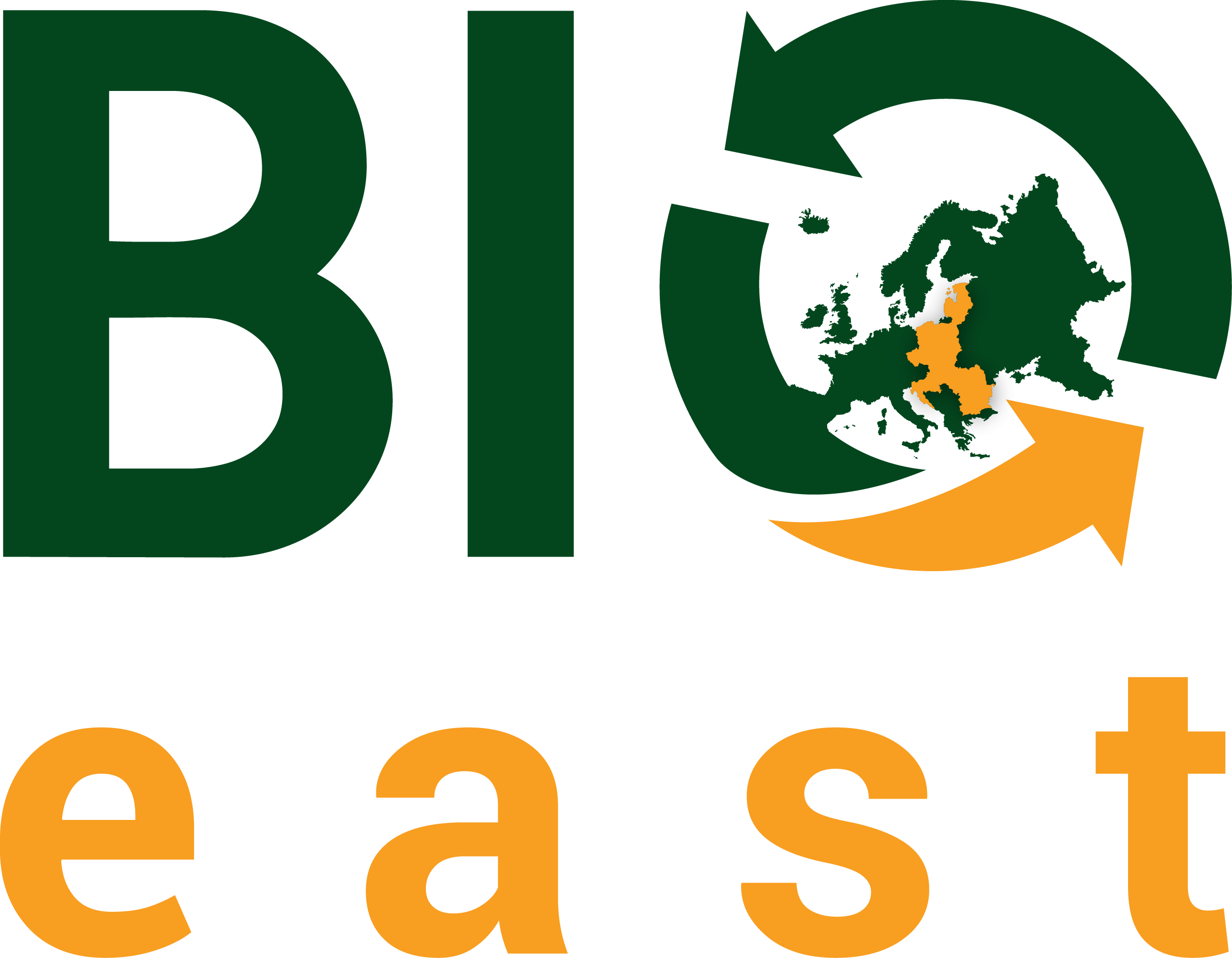Warsaw, 10th June 2025
The importance of understanding water in soils and water cycles as a connecting element—and of applying a comprehensive NEXUS approach—was prominently articulated during the high-level conference “Research, Innovation and Digitalization to Advance the Competitiveness of European Agriculture and Ensure Food Security“, held under the auspices of the Polish EU Presidency, in cooperation with the European Commission, the Standing Committee on Agricultural Research (SCAR), and the BIOEAST Initiative, in Warsaw on 10–11 June 2025.
The Thematic Session titled “Research and Innovation for Natural Resource Sustainability – Soil Health, Freshwater, Climate” brought the spotlight to the interdependence of natural resources—specifically soil health, freshwater systems, and climate resilience—and underscored the pressing need to align research and innovation (R&I) efforts with both the EU Soil Mission and the emerging European Water Resilience Strategy (2025). The session was moderated by Grzegorz Siebielec (IUNG).
Orsolya Frizon Somogyi (DG AGRI, European Commission), in her keynote, addressed the implementation of the Soil Mission, stressing that living labs and lighthouse farms must be anchored in local needs and supported by harmonized approaches across the EU. Claire Rogel-Gaillard, (SCAR SWG Agroecology, National Research Institute for Agriculture, Food and Environment) highlighted the need to better align agroecology and digital technologies with the realities of soil and water dynamics, noting the significance of planetary boundaries, water sharing, and genetic water resistance in the face of climate pressure. Martin Kováč, representing Slovakia’s Climate Club (expert platform of the National Trust NGO, Slovakia) and the BIOEAST Thematic Working Group on Fresh Water-Based Bioeconomy, delivered a compelling intervention advocating for a new water and climate paradigm. He emphasized the urgent need to boost targeted R&I investment to fully unlock the potential of the water–soil–climate NEXUS. He also mentioned the study „Farmer-led Research on Europe’s Full Productivity“ elaborated and published by The European Alliance for Regenerative Agriculture (EARA) early June 2025 that is an excellent contribution to the discussion on the role of regenerative agriculture in the transformation of agri-food systems in creating water and climate resilient landscapes.
Martina Desole, (European Network of Living Labs) , underlined the need to certify and support living labs, combine modern science with traditional knowledge, and harmonize approaches across Europe. Mateusz Ciasnocha, a practicing farmer and member of the Soil Mission Board, contributed perspectives from the field on regenerative agriculture, the realities of family farming, and the persistent challenge of accessing sustainable funding. The panel discussion emphasized the importance of aligning agroecological practices and digital technologies with the complex dynamics of soil and water. Critical issues raised included the relevance of planetary boundaries, equitable water sharing, genetic water resistance, and the growing competition for biomass. The dialogue highlighted the urgent need to establish clear hierarchies of biomass use to safeguard soil health and promote circularity in bioeconomy systems.
Martin Kováč concluded with a powerful message: “There is a need to restore small water cycles by increasing the water retention capacity of soil and landscape. This is the decentralized water infrastructure of the land surface vital for green water recovery, disaster risk reduction, and biotic regulation of climate.”
Earlier in the afternoon, Dr. Peter Wehrheim, Head of Unit at DG Research and Innovation, European Commission, pointed to gaps in targeted R&I on freshwater–soil interactions, the fragmentation of water governance, and the lack of integrated soil–water–climate strategies. He presented preliminary conclusions from an analysis prepared in the context of the Council Conclusion adopted under the Hungarian EU Presidency in November 2024. The new R&I initiative focused on the soil–food–water NEXUS, as referenced in these Council Conclusions, could provide a strategic framework for addressing the above mentioned challenges.
The BIOEAST Thematic Working Group on Fresh Water-Based Bioeconomy used the opportunity to contribute to the public discussion of the European Bioeconomy Strategy, basing its input on the Thematic Strategic Research and Innovation Agenda (SRIA).


